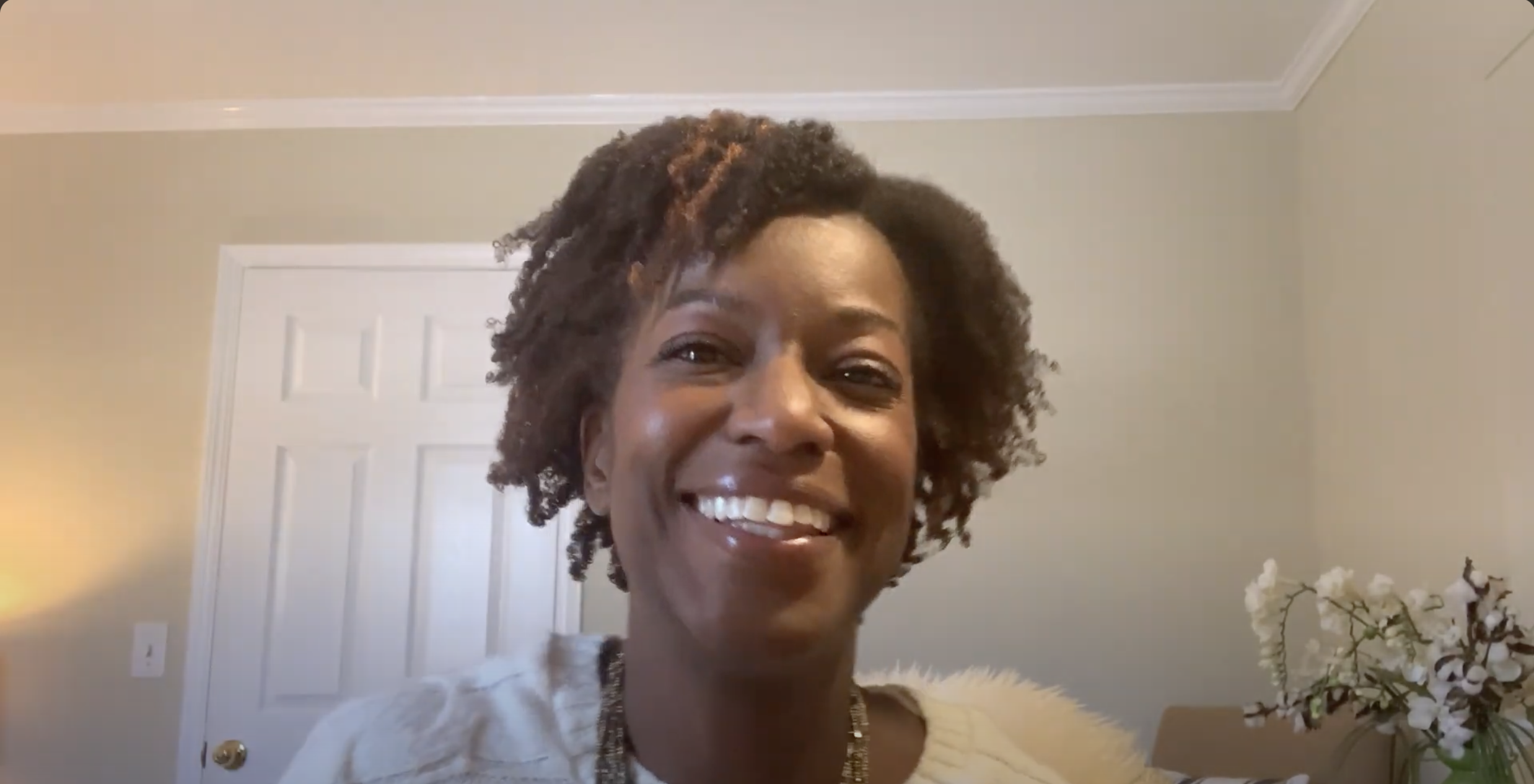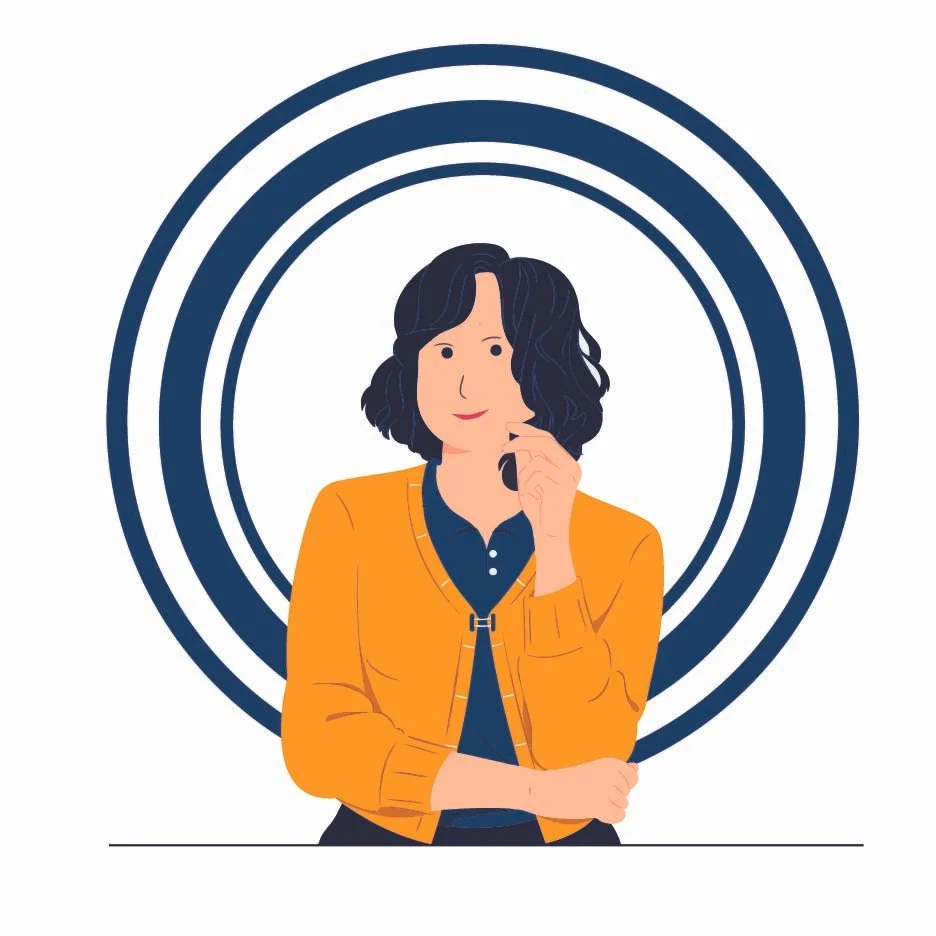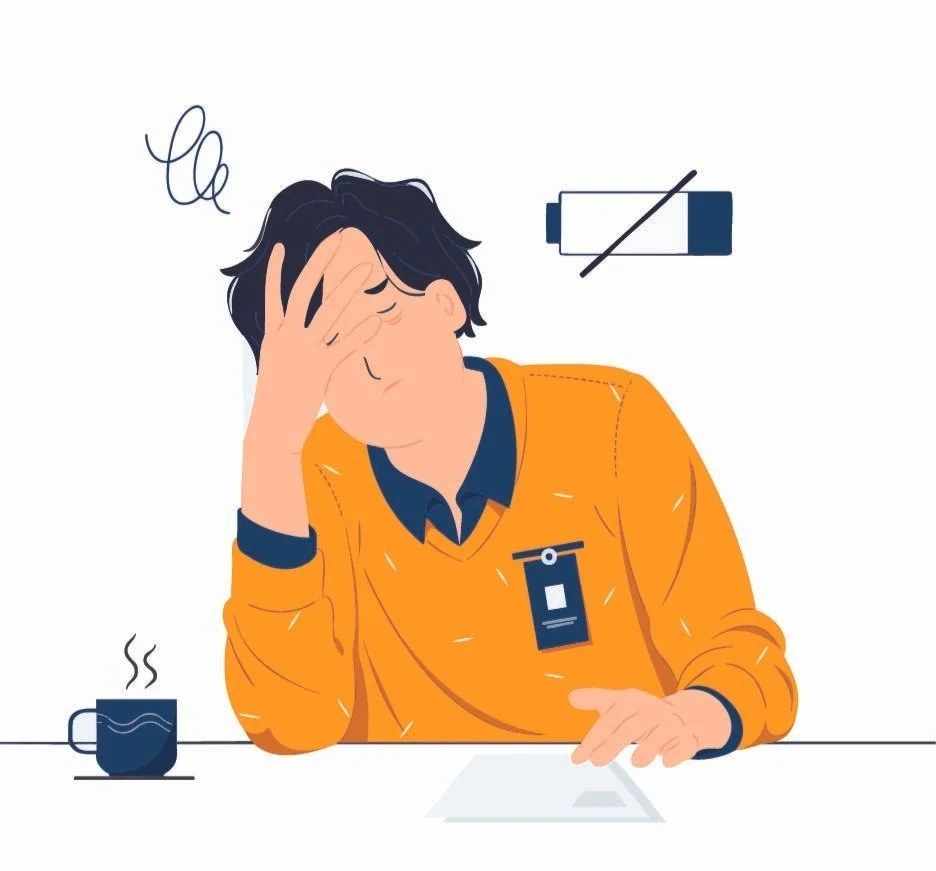Tapestry counselors help foster greater personal integrity and healing while deepening intimacy within marriages, families, churches, and the community.
Anxiety Therapy
Has your mind just opened it’s 100th tab?
Are you overthinking your overthinking??
Anxiety is like an annoying friend that demands your attention. A friend who has nothing better to do than to remind you about everything that could go wrong. A friend who cares…. and is trying to help… but is taking over your day nonetheless.
A Little Anxiety Is Normal… Even Helpful
Research suggests that a small to moderate amount of stress is good for our performance. That feeling of tension, physiological arousal and anticipation is initially a good thing. Anxiety is part of a protective system that alerts us to risks so we can stay safe, perform well and solve problems. The cognitive, emotional and physical arousal anxiety brings can help us respond to a threat of danger, maintain motivation during a challenging task, continue improving in a performance area, or make wise decisions by seeing around corners for bad outcomes.
Everyone experiences anxiety at times; it is a common and adaptive emotional response. It is part of living as a broken person in a fallen world. Anxiety is anchored in the mind’s ability to recognize previously experienced patterns and anticipate what could happen next. It serves as an alarm to warn us that something significant could be about to happen so that we can respond. When a potentially dangerous event or cue occurs, our emotional mind - which is much faster than our rational mind - signals the alarm of anxiety. We react and even as we are doing so, our rational mind assesses the event more closely. We then respond accordingly and the alarm of anxiety is turned off.
But As Anxiety Grows…
But as anxiety grows bigger and becomes disordered, it gets more and more difficult to switch off the alarm. We remain anxious - in a state of alarm - escalating our sensitivity to new cues, threats and worries that may have previously gone unnoticed. This heightened sensitivity evokes more anxiety, creating a negative feedback loop. The anxiety brings an overwhelming sense of apprehension that takes over your mind and body, crippling your ability to efficiently manage even small or simple facets of life.
Once it has reached clinically significant levels, it includes…
Racing thoughts; excessive worry
Diminished concentration
Elevated heart rate, dizziness and shortness of breath
Muscle tension
Distress; doubt about one’s ability to cope
Difficulty sleeping
Compromised health: diminished immune functioning, digestive problems, high blood pressure, heart disease
Social withdrawal
Increasing avoidance of feared cues, situations, activities or events
The National Institute of Mental Health states that almost 19.1% of American adults experiences clinically significant - and personally disruptive - levels of anxiety. Moreover, 31% of adults will suffer from an anxiety disorder at some point in their lives.
Across Time, Anxiety Can Change Who We Are
Some people have learned to live with their alarm system locked in the on position. They’ve grown so familiar with the psychological and physiological state of anxiety that they experience it as normal. The long term impact of living in this state with its elevated release of cortisol is well documented, compromising cardiovascular health, immune functioning, brain health, bone and joint functioning and even reproductive health.
The psychological impact is no less significant,
and it can color how we experience ourselves and others around us.
View of Self: I am not ok
View of Performance: I can’t stop; I have to get it right; I just have to do this on my own; This is too much; I’m terrified to make a mistake
View of Others: We are not ok
Social Impact: Withdrawing from friends; Disconnecting from relationships; Isolating to focus on tasks; OR feeling aggressive and agitated; Being short-tempered when others can’t keep up; Becoming more controlling
“Wouldn’t My Anxiety Go Away If I Had More Faith?”
Yes and No… When Paul tells us that we should be anxious for nothing (Philippians 4:6), he’s not issuing a rebuke, but telling us to turn toward God when we encounter circumstances that make us anxious. Fear and anxiety are an inevitable part of life in this fallen world. Some day we will see Jesus face-to-face in a world where His perfect reign eliminates any fear. In the meantime, we live in a world marred by the curse and, though beautiful, it is not always safe. The closer we are to God and the more anchored we are in His acceptance, care and protection of us, the less anxiety we experience. However, establishing spiritual maturity comes slowly and seasons of anxiety will wax and wane across our lifespan. Perhaps that is why God speaks to our fear and anxiety so often in the scriptures.
The Bible reminds us to hang onto the promises of the Lord, especially in seasons
of high fear and anxiety. He desires to meet us in it and offer comfort.
When the cares of my heart are many, your consolations cheer my soul. Psalm 94:19
And after you have suffered a little while, the God of all grace, who has called you to his eternal glory in Christ, will himself restore, confirm, strengthen, and establish you. I Peter 5:10
Do not be anxious about anything, but in everything by prayer and supplication with thanksgiving let your requests be made known to God. And the peace of God, which surpasses all understanding, will guard your hearts and your minds in Christ Jesus. Phil 4:6-7
For God gave us a spirit not of fear but of power and love and self-control. 2 Timothy 1:7
“How can I better manage my anxiety?”
1.
Assess Anxiety’s Message
Slow down and listen to the message implicit in your anxiety. What is the actual or objective risk at hand? What are the values implicit in the anxiety (e.g. financial security; social status, relational loss, etc.)… do those align with your deeper values and convictions?
2.
Stay Connected to Others
The more anxious we are, the more we need people around us. We were not designed to manage anxiety - or any other challenging facet of life - alone. Therapists think of this as a healthy dependency. When we reach for others in moments of distress, we experience co-regulation. This is what happens when you share your distress with someone outside of your situation who is less anxious than you. Their emotional and physiological calm, helps you to regain a sense of calm. The care, acceptance and touch of a friend or relative, helps re-ground us again.
3.
Steward Your Mind and Body
As anxiety escalates, your mind becomes over-focused on the fearful circumstance and you can lose awareness of your own basic needs. Take time to rest and do those things which you find to be physically, emotionally and spiritually restorative. Get away from the house. Get out in nature. Make walking, running, yoga, reading, creating art, deep-breathing, meditation, journaling and/or writing a part of your daily or weekly rhythm again.
4.
Notice How You’re Coping
What do you find yourself doing when you’re feeling anxious? Notice whether you’re over-controlling or avoiding the circumstances around your anxiety. Are you checking out and/or numbing (drinking, smoking, drug use, overeating, under-eating, binging TV, gambling, scrolling, gaming, shopping). Numbing strategies might help us feel better for a moment but they usually end up causing us more harm in the long run; some can become habitual or compulsive. The more anxious we become, the more we are prone to either avoidance or control. Anxiety in our relational world, can quickly become disruptive when we either withdraw from those we love (avoidance) OR we grow more needy, angry, irritable, demanding or frantic (control). Sometimes, just recognizing what you are doing in your anxiety can help you regain a sense of intentionality.
5.
Remember That You’re
Still In Charge
It’s good to remind yourself that you’re still in the driver seat of your choices even when it feels like your fear has taken over. As hard as it is to regain your sense of will in the face of intense anxiety or panic, this can be accomplished. As a beginning point, notice what’s going on within yourself. What are you feeling? What thoughts is your mind producing? What impulses are you experiencing? What are you noticing in your body? While your anxiety may be inclining you to think and act in a certain way, you may still choose otherwise.
6.
Consider Professional Help
With some types of anxiety (Obsessive-Compulsive Disorder, Panic Disorder, Posttraumatic Stress Disorder, etc.), professional counseling is critical to help you find healing and freedom. However, professional counseling can also help you learn how to better understand and manage your anxiety before it gets out of hand. Don’t wait until you are stuck in your anxiety or overwhelmed. Reach out to a therapist now and get ahead of it.
A few other resources
worth looking at
The Anxiety and Phobia Workbook by Edmund Bourne
The Anxiety Opportunity by Curtis Chang
Calm (see your phone app store)
Headspace (see your phone app store)
Meet the Authors
Stacey Foster
MA, LAPC
Stacey completed her Masters in Clinical Mental Health Counseling at Richmont Graduate University, learning how to be the helper while Christ is being the Healer. Stacey believes our souls long for harmony through a healthy balance of our mind, body, and spirit. As such, she takes a holistic approach in her clinical work. Believing we all have a story that matters, she focuses on helping people find what they need by understanding and owning their life story. Utilizing somatic, emotion focused, and cognitive awareness, Stacey walks with others to help them understand themselves and their story in a new way. Through the power of self-awareness, healing relationships, and the truth of one’s identity in Christ, restoration can be found.
Sarah Collier
MAMFT, LPC
Sarah received her Master's degree in Marriage and Family Therapy and has worked professionally with individuals and families for many years. Sarah has worked mostly with women and young adults and teens as they work through major life transitions, grief, identity development and pain. She is well-versed in working with anxiety and depression and its biological and environmental influences and then helping those gain a deeper understanding of themselves and walk away with more practiced tools and skills to manage in day to day life. Most importantly, Sarah holds deep value for the courage people show to open up and ask for support and the power of what a safe and therapeutic environment can offer.










